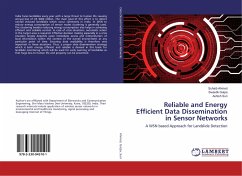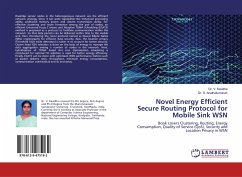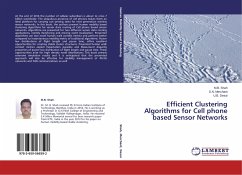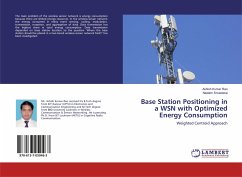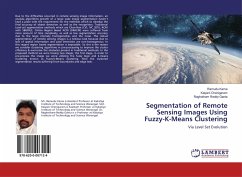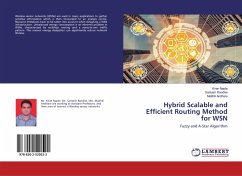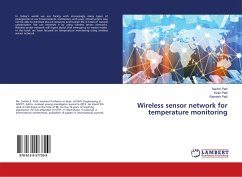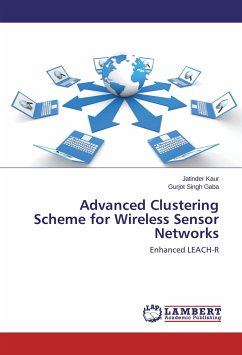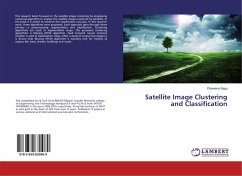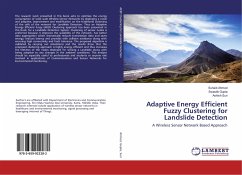
Adaptive Energy Efficient Fuzzy Clustering for Landslide Detection
A Wireless Sensor Network Based Approach
Versandkostenfrei!
Versandfertig in 6-10 Tagen
33,99 €
inkl. MwSt.

PAYBACK Punkte
17 °P sammeln!
The research work presented in this book aims to optimize the energy consumption of wide scale Wireless Sensor Networks by deploying a novel and adaptive, improvement and modification on the traditional clustering of the cells of the network for Landslide Detection. Thus an Adaptive Energy Efficient Fuzzy (AEEF) Clustering approach has been presented in this book for a Landslide Detection System. Clustering of sensor nodes is preferred because it improves the scalability of the network, has better data aggregation which dramatically reduces transmission data and saves energy, reduces latency a...
The research work presented in this book aims to optimize the energy consumption of wide scale Wireless Sensor Networks by deploying a novel and adaptive, improvement and modification on the traditional clustering of the cells of the network for Landslide Detection. Thus an Adaptive Energy Efficient Fuzzy (AEEF) Clustering approach has been presented in this book for a Landslide Detection System. Clustering of sensor nodes is preferred because it improves the scalability of the network, has better data aggregation which dramatically reduces transmission data and saves energy, reduces latency and provides with collision avoidance along with ensuring high connectivity and fault tolerance. The proposed algorithm is validated by carrying out simulations and the results show that the proposed clustering approach is highly energy efficient and thus increases the lifetimes of the nodes deployed for sensing a Landslide along with being adaptive to any changes in the ambient conditions. This analysis should be especially useful to professionals and students or anyone else involved in applications of Communications and Sensor Networks for Environmental monitoring.



